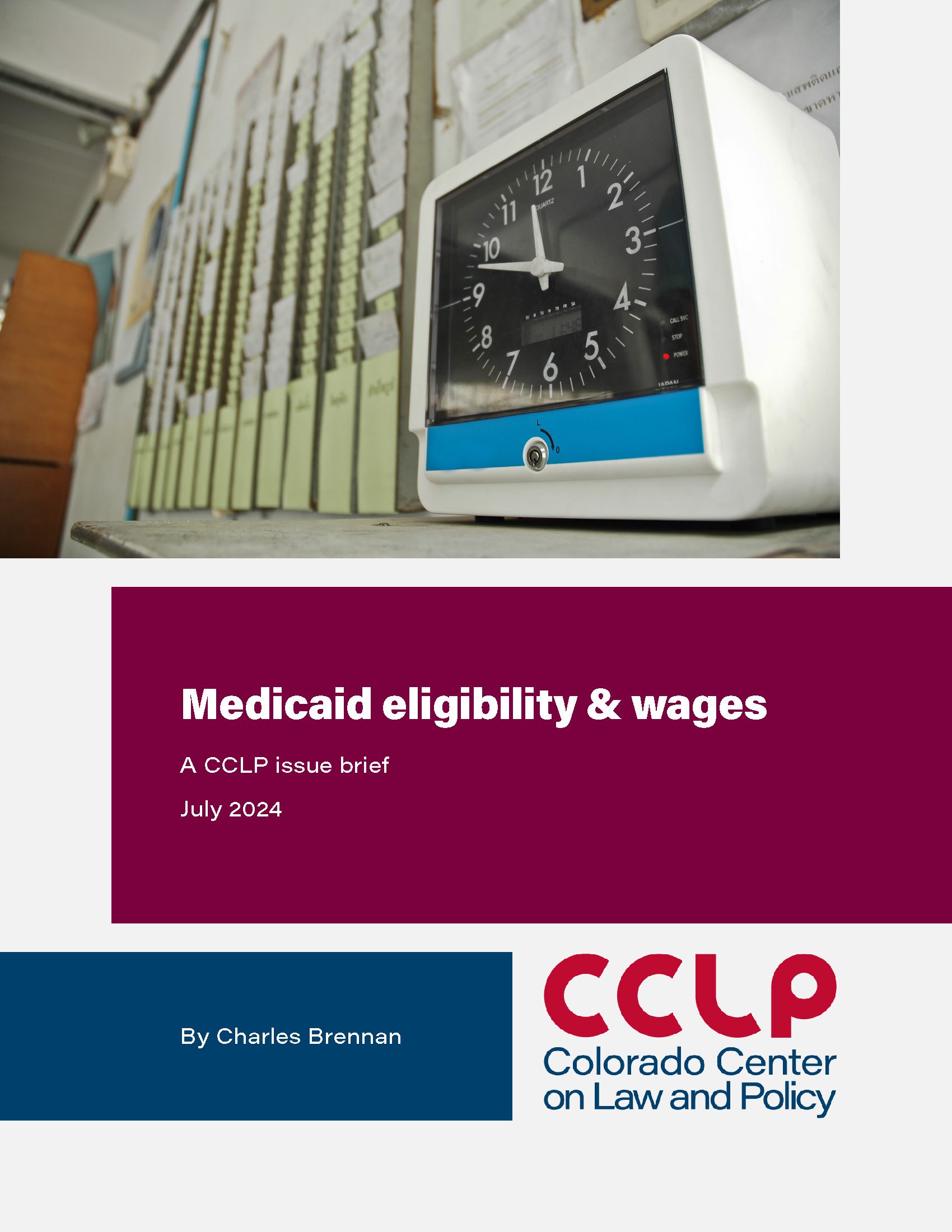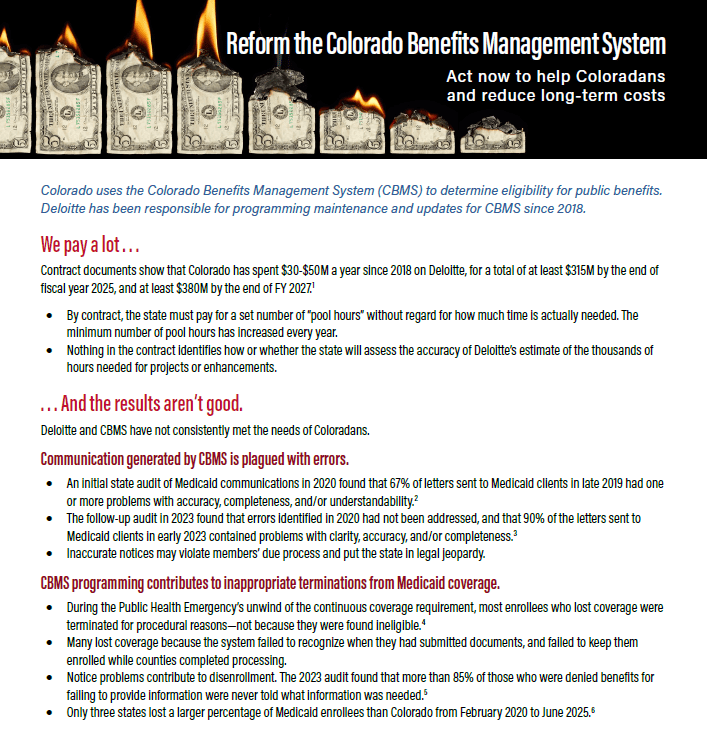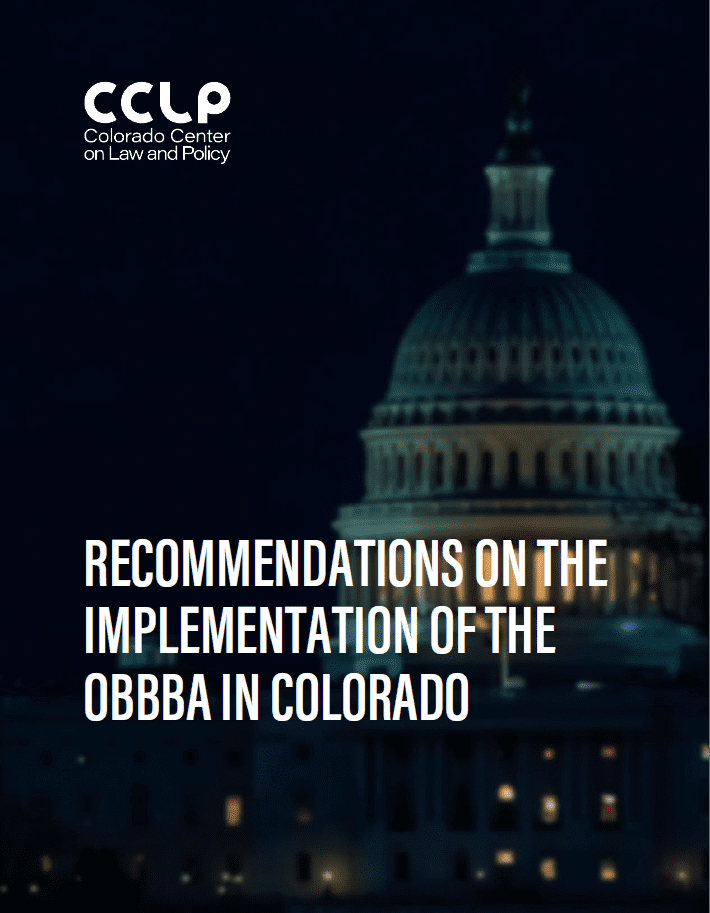Colorado, like other states across the country, has seen increases in the state minimum wage since the start of the COVID-19 pandemic. Colorado has also seen high rates of disenrollment from Medicaid, particularly since the end of the COVID-19 Public Health Emergency (a process known as the PHE Unwind.) The increase in the state minimum wage has been proposed as an explanation for the high rate of disenrollment. However, our analysis leads us to believe that there are other, more significant factors that explain why Colorado’s disenrollment rate is so high compared to other states in the country.
Using data from the Bureau of Labor Statistics and KFF (who collected their data from the Centers for Medicare and Medicaid Services), we examine how wage increases since 2019 might have influenced a low-wage workers eligibility for Medicaid, and how wages changes in other states compared to their disenrollment rates in order to better understand the relationship between wages and Medicaid enrollment across the country. Using statistics, we can quantify the relationship between wages and disenrollment rates to determine how changes in wages explain — or don’t explain — the variation we see in states’ Medicaid disenrollment rates.





CCLP Public Comment to HHS Reinterpretation of Federal Public Benefit
Public Comment, Publications